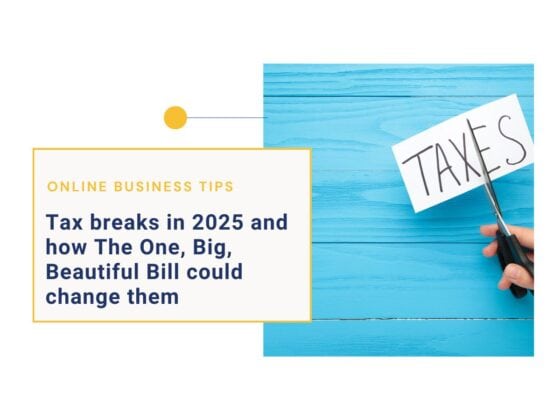Everything comes at a cost—even “free money.” If you’ve won a sizable cash prize recently, congratulations! But be prepared. Your good fortune will likely impact your tax bill. Contacting your accountant or wealth advisor as soon as possible is probably in your best interest.
Money earned from gambling
Whether you win at a tiny bingo hall or a major casino, the tax rules are the same. 100% of your winnings must be reported as taxable income on the “Other income” line of your 1040 tax return.
When it comes to reporting winnings for a particular wager, you’ll need to calculate your net gain. For example, if you bet $50 on the Super Bowl and win $140, you should report $90 of income rather than the full $140.
What about losses? They’re deductible, but only as itemized deductions. You can’t take the standard deduction and deduct gambling losses. Even so, they’re only deductible up to the amount of gambling winnings reported. In other words, losses can be used to “wipe out” gambling income, but your forms can’t report a gambling tax loss.
Still, it’s worth keeping a thorough record of your losses during the year. Hang onto any checks or credit slips and be sure to document the place, date, amount, and type of loss. It may also be helpful to keep track of the name of anyone who was with you.
Note: If you’re a professional gambler, different rules apply.
Lottery winnings
Did you know that lottery winnings are taxable? Hitting the jackpot is rare, but getting audited by the IRS for failing to follow tax rules after winning isn’t.
Winners are required to pay taxes on cash prizes and the fair market value of non-cash prizes, too, like vacations or cars. Your exact federal tax rate may vary, but it could be as high as 37% depending on the amount of your winnings and your other income. State income tax may also apply.
For non-cash prizes, you’ll need to report your winnings in the year the prize is received. If you take a cash prize in annual installments, you should report each year’s installment as income for the year you receive it.
Winnings over $5,000
If you win over $5,000 from the lottery or certain types of gambling, 24% will be withheld for federal tax purposes. The payer (agency, casino, lottery, etc.) will send you and the IRS a Form W-2G listing the federal and state tax withheld and the amount paid to you. Hang onto this form for your records.
If a federal tax rate between 24% and 37% applies to you, the 24% withholding may not be enough to cover your federal tax bill. In this instance, you may need to make estimated tax payments. If you fail to do so, you could be assessed a penalty. You might be required to make state and local estimated tax payments, too.
Since your federal tax rate can be up to 37%, which is well above the 24% withheld, the withholding may not be enough to cover your federal tax bill. Therefore, you may have to make estimated tax payments—and you may be assessed a penalty if you fail to do so. In addition, you may be required to make state and local estimated tax payments.
Questions? Smolin can help.
This article only covers the basic tax rules. Additional rules could apply in your situation. You may also have additional concerns after winning a large sum of money, such as updating your estate plan.
If you want to stay in compliance with tax requirements, minimize what you owe, and manage your winnings more effectively, we’re here to help. Contact us now.


